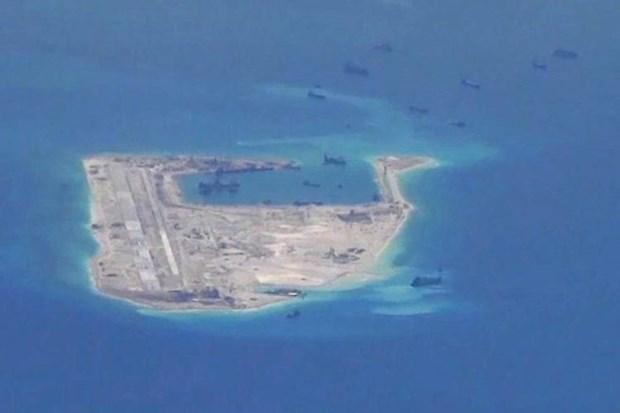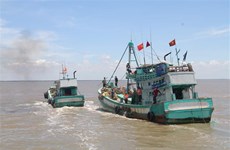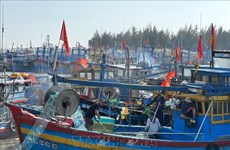Scholars stress need to settle East Sea disputes in line with law
Scholars stressed the need to peacefully settle East Sea disputes in line with international law at an international workshop held in Geneva, Switzerland on December 6.
 Illustrative image (Source: WSJ)
Illustrative image (Source: WSJ) The workshop was titled “South China Sea disputes – Award of the Arbitral Tribunal constituted under Annex VII to the United Nations Convention on the Law of the Sea and its implementation”.
Attorney Pierre Schifferli, deputy judge of the Court of Appeals in Geneva, said China has put itself above the law when it openly denounced the ruling and used force, a violation of Article 2, Clause 4 of the UN Charter.
Researcher Bill Hayton from the Royal Institute of International Affairs in London agreed, saying that China is in a dilemma as Beijing’s claims over most of the East Sea face condemnation and its sea ambitions directly conflict with international law.
In her speech on implications of reclamation, construction and militarisation in the East Sea on regional peace and security, Director of the Centre for Russia, Europe and Asia Studies Theresa Fallon said the construction and expansion of entities in the East Sea impacts many issues, especially fish stock and petroleum.
According to Director of the Asia Maritime Transparency Initiative under the Centre for Strategic and International Studies Gregory Poling, the number of countries which protested the PCA and its ruling decreased significantly, from 31 before July 12, 2016- the date the PCA issued a ruling on the East Sea issue-, to six.
Professor of International Law from the University of Naples “L’Orientale” Giuseppe Cataldi called for preventing unilateral actions that risk exacerbating tension between parties concerned as well as seeking cooperation for common interests based on the respect for law.
Prof. Robert Kolb from Geneva University’s Law Faculty, for his part, affirmed that Vietnam has the most persuasive and strongest evidence to prove its sovereignty over Hoang Sa (Paracel) and Truong Sa (Spratly) archipelagoes, citing documents from the 18th century and in 1920 and 1930.
Concluding the event, participants welcomed the PCA’s ruling, saying that it narrows the geographical scale of contested areas, opens up opportunities to settle disputes and promotes cooperation.
The workshop emphasised ASEAN’s central role in building regional security institutions, stepping up the settlement of disputes via diplomatic and legal means and the implementation of the Declaration on the Conduct of Parties in the East Sea, towards reaching a Code of Conduct in the East Sea.
The event brought together 9 speakers who are experts in law and international relations from universities and research institutes in the US, UK, Belgium, Switzerland, Italy and Australia./.













